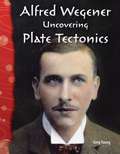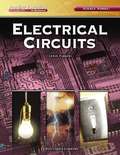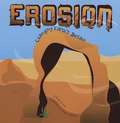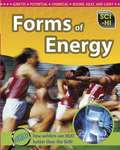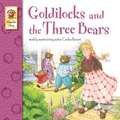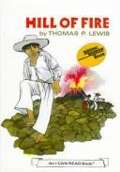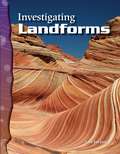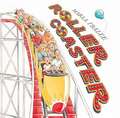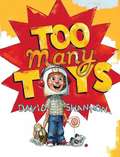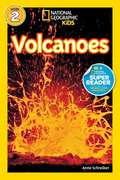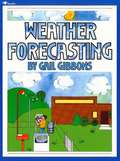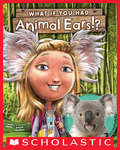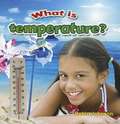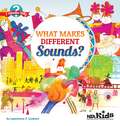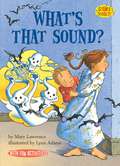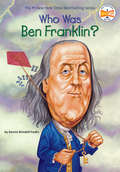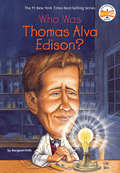Special Collections
District List: BCPS Science - Grade 4
Description: Baltimore City Public Schools Science book list for students in 4th Grade. #bcps
- Table View
- List View
Alfred Wegener
by Greg YoungIn this appealing biography, children will read about the fascinating life, theories, and discoveries of Alfred Wegener. From his time in Greenland studying meteorology with hot balloons to his theory of Pangea, readers will be eager to learn more about Wegener's contributions to science and the strides he took towards developing the study of plate tectonics. The easy-to-read text, accessible glossary, helpful index, and intriguing facts work in conjunction with the lively images and captivating lab activity to engage readers from beginning to end!
Lexile Measure: 630L
Animal Ears
by David SchwartzYoung scientists will examine plant parts and animal features "up close" and then turn the page to see how these smaller parts fit into the "bigger picture." Children will take a close-up view of the powerful ears of a bat, the thorny stem of a blackberry bush, the sticky tongue of a fly, and more.
Earthquakes
by Franklyn M. BranleyRead and find out about one of nature's most mysterious forces--the earthquake. Some earthquakes are so small that you don't even feel them, while others can make even big buildings shake! Learn why earthquakes happen, where they are most likely to occur, and what to do if one happens near you.
Electrical Circuits
by Lewis ParkerElectricity is often something we take for granted until we are without it. Learn how circuits work and see how shocking static electricity truly is.
Erosion
by Matthew Harrad and Robin KoontzDid you know that rain, waves, wind, snow, and ice can change the shape of Earth's surface? They can create valleys, sea stacks, caves, and rock arches. Learn about the natural forces of erosion and how they shape the land.
Eruption!
by Elizabeth Rusch and Tom Uhlman“At 11:35 p.m., as Radio Armero played cheerful music, a towering wave of mud and rocks bulldozed through the village, roaring like a squadron of fighter jets.” Twenty-three thousand people died in the 1985 eruption of Colombia’s Nevado del Ruiz. Today, more than one billion people worldwide live in volcanic danger zones. In this riveting nonfiction book—filled with spectacular photographs and sidebars—Rusch reveals the perilous, adrenaline-fueled, life-saving work of an international volcano crisis team (VDAP) and the sleeping giants they study, from Colombia to the Philippines, from Chile to Indonesia.
Forms of Energy
by Anna Claybourne and Heinemann StaffHigh-interest magazine-like design and approach that teaches science with clear introductions and content.
Goldilocks and the Three Bears
by Candice RansomIn this beloved tale, the three bears are in for quite a surprise when they return home and realize that a curious girl has made herself at home in their cottage. Children will eagerly continue reading to see what the bears do when they find their dinner eaten all up.
Hill of Fire
by Thomas P. LewisHere is the exciting story of the eruption of Parícutin, the volcano in Mexico that burst from a farmer's field and changed the lives of the people who lived nearby.
Investigating Landforms
by Lynn GorpLandforms are features on the earth's surface that are made naturally. Mountains, plains, and plateaus are all examples of landforms. The study of landforms is called geomorphology. Scientists can learn about the past and even predict future changes by studying landforms. Today we can take pictures of landforms from airplanes and satellites.
The Mitten
by Jan BrettA bestselling modern classic that has been a family favorite for over 25 years.
When Nicki drops his white mitten in the snow, he goes on without realizing that it is missing.
One by one, woodland animals find it and crawl in; first, a curious mole, then a rabbit, a badger and others, each one larger than the last. Finally, a big brown bear is followed in by a tiny brown mouse and what happens next makes for a wonderfully funny climax.
In her distinctive style, Jan Brett brings the animals to life with warmth and humor, and her illustrations are full of visual delights and details faithful to the Ukrainian tradition from which the story comes.
Roller Coaster
by Marla FrazeeClickity, clackity. Clickity, clackity. The roller coaster car is going up, up, up to the highest spot. And one of the people in the car has never ridden on a roller coaster before...ever.--From book jacket
Too Many Toys
by David ShannonSpencer has too many toys. He has robots, puzzles, board games, stuffed animals, and plastic action figures. Toys spill out of every drawer and closet and clutter the floor of every room. Have you ever tried to get to your kitchen and tripped over a race car? Spencer's house has become hazardous. Something has to be done! Come along as Spencer tries to persuade his mother to keep them all-because every single toy is his favorite. In the end, it's not a store-bought toy but the give-away box itself that captures Spencer's attention. Once again, award-winner David Shannon proves that an entertaining story and your own imagination are the very best toys of all!
Volcanoes!
by Anne SchreiberThe cool story of volcanoes will intrigue kids and adults alike. Hot melted rock from the middle of our planet forces its way up through cracks in the Earth’s crusts, exploding violently and sometimes unexpectedly in volcanic fury that can terrorize populations for months, even years. Anne Schreiber’s narrative gives readers a little of the science, a little of the history, and a lot of the action.
Weather Forecasting
by Gail GibbonsWill I need my umbrella? Is it a good day for the beach? Will school close because of snow? These are the questions weather forecasters answer every day. They can tell us what the weather is doing at any time of the day or night. But how do they do it? Weather Forecasting tells how.
With straightforward text and colorful pictures, this behind-the-scenes look at a modern weather station answers basic questions kids ask most, and makes weather forecasting more fun and accessible than ever.
What If You Had Animal Ears?
by Sandra MarkleIf you could have any animal's ears, whose would you choose?What if you woke up one morning and your ears weren't yours? What If You Had Animal Ears explores what would happen if you looked in the mirror and saw an animal's ears instead of your own! The next imaginative book in the What If You Had series, explores incredible ears from the animal kingdom. From the elephant's tremendous ears to the jack rabbit's mood ears, discover what it would be like if you had these special ears--and find out why your ears are just the right ones for you!
What Is Temperature?
by Robin JohnsonTemperature is a measure of how hot or cold something is. Temperature affects our lives from the clothes we wear to the activities we do. This engaging and entertaining title inspires a solid understanding of this essential concept. Readers also discover how a thermometer is used to measure temperature using units called degrees.
What Makes Different Sounds
by Lawrence LoweryOn their walk home from school, twins Jane and Jim explore why sounds can be startling (like sirens), soothing (like music), or mysterious (like eerie creaking in an empty house). By coming along, young readers of What Makes Different Sounds? can learn as the twins do. They’ll be introduced to the roles vibration, pitch, and volume play in how rustles, rumbles, and rat-a-tat-tats are made and transferred to their own ears. What Makes Different Sounds? is part of the I Wonder Why book series, written to ignite the curiosity of children in grades K–6 while encouraging them to become avid readers. These books explore the marvels of sound, animals, plants, and other phenomena related to science and nature. Included in each edition is a Parent/Teacher Handbook with coordinating activities. The I Wonder Why series is written by an award-winning science educator and published by NSTA Kids, a division of NSTA Press.
What's That Sound?
by Mary Lawrence and Lynn AdamsAmy and Tim go to the country for a few weeks. Dad loves the peace and quiet. But Tim is spooked because he thinks the house is full of scary noises.
Who Was Ben Franklin?
by Dennis Brindell Fradin and John O'Brien and Nancy HarrisonBen Franklin was the scientist who, with the help of a kite, discovered that lightning is electricity. He was also a statesman, an inventor, a printer, and an author-a man of such amazingly varied talents that some people claimed he had magical powers! Full of all the details kids will want to know, the true story of Benjamin Franklin is by turns sad and funny, but always honest and awe-inspiring.
Who Was Thomas Alva Edison?
by John O'Brien and Margaret Frith and Nancy HarrisonOne day in 1882, Thomas Edison flipped a switch that lit up lower Manhattan with incandescent light and changed the way people live ever after. The electric light bulb was only one of thousands of Edison's inventions, which include the phonograph and the kinetoscope, an early precursor to the movie camera. As a boy, observing a robin catch a worm and then take flight, he fed a playmate a mixture of worms and water to see if she could fly! Here's an accessible, appealing biography with 100 black-and-white illustrations.
